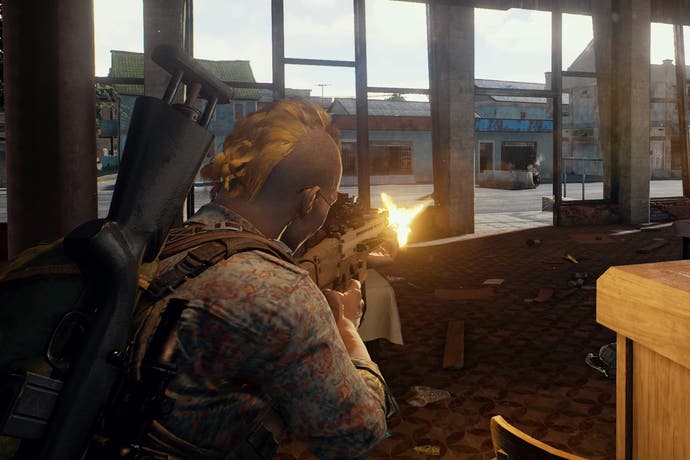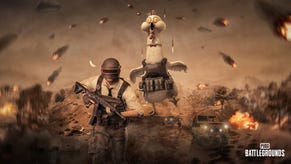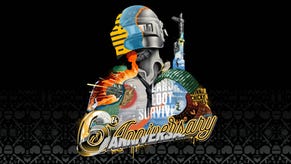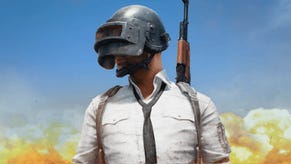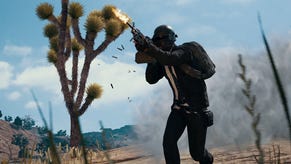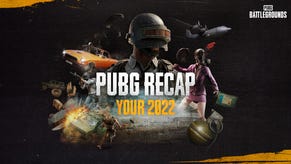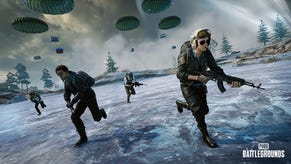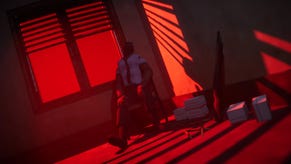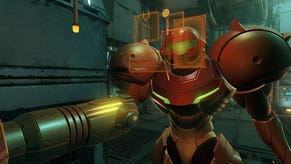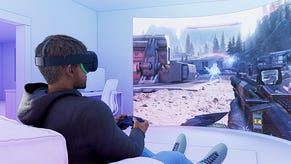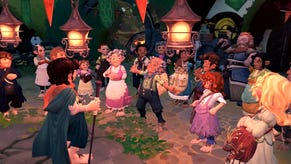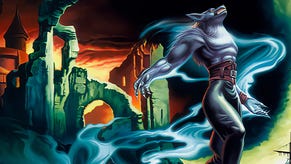PlayerUnknown's Battlegrounds' first big tournament showed it has the potential to be a great esport
Invite only.
After four days of players battling it out for a share of a $350,000 prize pool, the Gamescom PlayerUnknown's Battlegrounds Invitational is over.
The idea of holding an invitational for a game in Early Access seems absurd, but Battlegrounds is not just any Early Access game. Currently sitting at over eight million sales in just five months, PlayerUnknown's Battlegrounds must be considered a video game goliath. But does it work as an esport?
It's no secret chief developer Brendan “PlayerUnknown” Greene wants Battlegrounds to be an esport one day. Indeed the Gamescom Invitational was a kind of dry-run for a big esports push. And it asked an important question: would people watch a Battlegrounds tournament?
It turns out, yes they would.
Over 80 players competed in the Gamescom Invitational, including streamers, YouTubers and open qualifier winners. But only nine players had the privilege of walking away with the golden frying pan. You can check out some of the highlights from day one in ForThePacks video below:
The tournament format worked well, suiting players who play alone and those who prefer to work in teams. Each day saw a different event: Wednesday was for Solo; Thursday Duo third-person; Friday Duo first-person; and Saturday was Squads. Each event consisted of three matches. Whoever gained the most points across the three matches would win. Solo players received five points per kill, while Duo and Squads received four points per kill. Winning first place in a match fetched players 500 points while second and third place awarded 360 and 290 points respectively.
To avoid anyone being at an advantage, uniform settings were also in place. This ensured texture was set to high, foliage to medium and disallowed competitors from binding crouch jump (one button to jump out windows). The red zone was also turned off because, let's be honest, players had enough to worry about.
Visually, the invitational looked like an esport live event, although one on a budget. The area was decorated in pretend building ruins. There were commentators, unwanted commercials and player interviews. We've come to expect polished events from the titans of esports, but the rugged feel of the floor epitomised the Battlegrounds experience. It's just a shame the whole thing was poorly organised.
Server errors blighted the tournament, and occurred several times throughout the competition. This meant players had to come out of the game and then try and go back in. Almost every match was delayed by up to an hour as a result.
The commentators proved the tournament's saving grace. Seasoned esports commentating vets Lauren "Pansy" Scott and Richard "TheSimms" Simms did a great job of overcoming the issues, with Pansy's knowledge of PUBG shining through, but even they struggled at times. At one point during a delay, Pansy admitted she was bored waiting and there was only so much she could talk about the game before it started. That was day three.
Perhaps the biggest issue was the double-edged sword that was the spectator cam. At times the spectator cam provided a great view of the players, or how close players were in comparison to each other. The problem was the team couldn't keep up with the vast number of players (80) in the game. There were many times when the camera would flick abruptly from a firefight to a player who wasn't doing anything particularly interesting. At one point the camera spent five minutes looking at people swimming, while the commentators tried in vain to encourage the cam operator to move on. There was also an annoying crosshair which was present throughout the games. In short: the camerawork was sloppy.
On the one hand, you have to have some sympathy for the people manning the spectator cam. Keeping track of 80 players can't be easy, and making sure the viewer always has something entertaining on screen in a game such as Battlegrounds is nigh-on impossible. This problem was exacerbated in the Solo tournament, where the production team had to keep track of 80 players all doing their own thing. In Duo and Squads, players in the same team usually stick together, which makes for more manageable spectator cam management and more interesting viewing.
Though there were a lot of technical issues with the tournament, PlayerUnknown's Battlegrounds was enjoyable to watch, which suggests it has the foundation of a great esport. I really got into the matches despite the camera playing up. PUBG is a simple game to follow and the number of strategies you see play out on the battlefield makes it exciting. And there's a clear appeal for the wider PUBG community: watch and learn strategies from the best you can then employ yourself.
Some of the strategies we saw at the Gamescom Invitational didn't go down well, however. Take Evermore, the player who won the Solo event, for example. He spent most of the game hiding in the blue zone, and won with only four kills. TSM_BreaK, who came in second place, was deemed more worthy of the victory with a total of 16 kills. There were also instances of teams spending the games hiding in shelter or underwater. But that's the nature of Battlegrounds; it's not about right or wrong, it's about winning that chicken dinner, no matter how boring the strategy.
Perhaps the best part about PlayerUnknown's Battlegrounds as an esport right now is that is really isn't one yet, which meant the Gamescom Invitational felt like a level playing field. The Duo third-person event was won by an open-qualifier team who beat pro-team Cloud Nine. They were not happy bunnies.
So does Battlegrounds work as an esport? Yes. Despite its shortcomings, I enjoyed watching it and I get the impression many others did, too. However, we need to remember PUBG is an Early Access game. It's still got a long way to go before its esports events will compare to those of the likes of CS:GO or Dota 2. But with some tweaks, PUBG should be an esports success.
